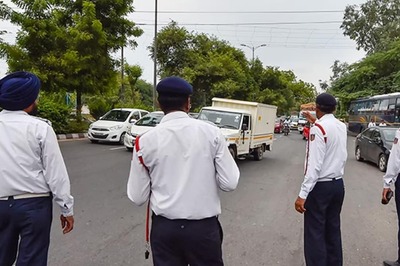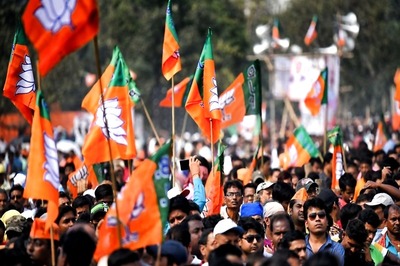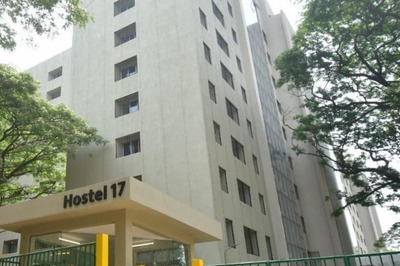
views
New Delhi: Echoing the sentiments of his predecessor Manohar Parrikar, defence minister Rajnath Singh has indicated a review of India's ‘No First Use’ policy as far as nuclear weapons are concerned.
During a visit to Rajasthan’s Pokhran on August 16, the first death anniversary of former prime minister Atal Bihari Vajpayee, Singh said, “Till today, our nuclear policy is 'No First Use'. What happens in the future depends on circumstances.”
Whether Rajnath Singh has indicated a definitive policy change in India's national security could be too early to presume.
In 2016, just two years after Prime Minister Narendra Modi came to power, then defence minister Manohar Parrikar had made a similar statement. "Why should I bind myself? I should say I am a responsible nuclear power and I will not use it irresponsibly. This is my (personal) thinking,” he had said.
A day later, the defence ministry had issued a clarification stating that this was Parrikar's personal opinion. “What he said was that India, being a responsible power, should not get into first-use debate. But once again, it is clarified that this was his personal opinion,” a ministry spokesperson had said.
In an interview to news agency ANI just before assuming office in April 2014, Modi had said, "No first use was a great initiative by Atal Bihari Vajpayee. There is no compromise on that. We are very clear. ‘No first use’ is a reflection of our cultural inheritance."
But it must also be remembered that the BJP had promised in its 2014 election manifesto to “study in detail India’s nuclear doctrine, and revise and update it, to make it relevant to challenges of current times.”
Nevertheless, Rajnath Singh's statements have evoked reactions from several retired senior officers of the armed forces.
Lieutenant General (Retd) Syed Ata Hasnain took to Twitter to praise what he called a policy of “ambivalence”.
"Hon'ble RM spoke of possibility of review of No First Use in India's nuc doctrine...I feel ambivalence is not a bad policy. Nothing is cast in iron. But India [is] respected for NFU (sic)," he said.
Speaking to News18, Air Vice Marshal (retd) Manmohan Bahadur also expressed similar views, saying ‘No First Use’ is an advantageous policy, but there is no harm in conducting a full review of it.
"No First Use is, for now, our policy. It is the right policy to have. It has all the advantages. But the problem with it is that it is more 'self-deterring'. We begin to doubt ourselves having such a policy. So a review isn't unwelcome at this stage. Countries around the world are reviewing their policy, there is no harm in taking another look at our own policy."
He, however, added that one has to wait and see if the defence ministry issues a Parrikar-like clarification.
Perhaps the first authoritative push for ‘No First Use’ review came from former foreign secretary and NSA Shivshankar Menon, who in his book Choices wrote, “There is a potential grey area as to when India would use nuclear weapons first against another NWS (nuclear weapons state). Circumstances are conceivable in which India might find it useful to strike first, for instance, against an NWS that had declared it would certainly use its weapons, and if India were certain that adversary’s launch was imminent.”
In an interview to The Wire, Menon said that the ‘No First Use’ policy had actually been reviewed thrice since 2003, when India adopted its nuclear doctrine, and found to be serving India's interests.
"It is important that we keep reviewing, but so far I think it’s actually served our purpose. NFU has been reviewed thrice since 2003 has been has served India's. But we need to keep reviewing it. The developments around us are changing, the NFU needs to be adjusted to reality."
The staunchest criticism of ‘No First Use’ has been made by the former chief of strategic forces command, Lt. Gen. BS Nagal, who described the policy as a “formula for disaster”.
In his book India's Nuclear Doctrine and Strategy, he wrote, “Strategic deterrence can follow a policy of first use when there is an unstable and unpredictable adversary, thereby eliminating the dilemma of responding to battlefield weapons or having to qualify circumstances of use with no first use.”
Vipin Narang, an expert on South Asian nuclear strategy at the Massachusetts Institute of Technology, recently published a paper in which he quoted Nagal, saying he was "the highest-level officer in India's nuclear system to write on these issues, explicitly advocates Indian preemptive nuclear use in a counterforce mode to try to disarm the adversary."
In his paper, Narang argued that India "may" abandon the policy and launch a preemptive strike against Pakistan if it believed that Pakistan was going to use nuclear weapons or most likely the tactical nuclear weapons against it. "Serious voices, who cannot be ignored, seem to suggest that this is where India may be heading, and certainly wants to head," Narang said.
"So our conventional understanding of South Asia's nuclear dynamics and who, in fact, might use nuclear weapons first and in what mode may need a hard rethink given these emerging authoritative voices in India who are not content to cede the nuclear initiative to Pakistan,” he added.




















Comments
0 comment